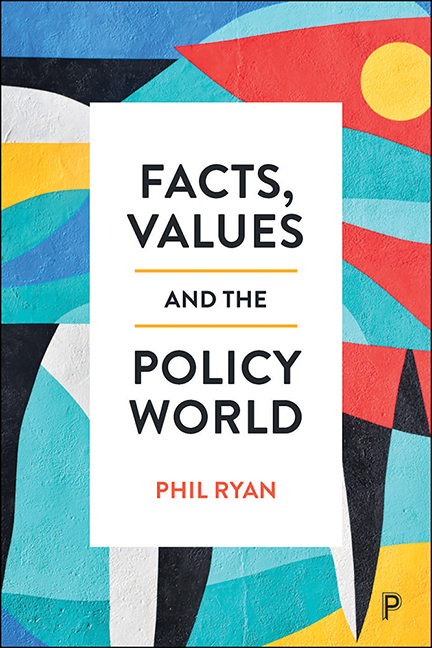PART II - Non-binary analysis
Published online by Cambridge University Press: 15 September 2022
Summary
What changes for policy analysis when we:
• abandon the binary view;
• understand that our beliefs form a network, that our facts and norms depend upon each other;
• understand that this network doesn't have a final foundation; and
• abandon all forms of foundational pessimism, affirming that there is always something to talk about?
What changes when we fully accept this outlook?
Policy analysis does not change from night to day when one embraces the key arguments advanced in this work. Because we only half believe in the binary view to begin with, many of the practices consistent with the outlook being urged here already exist within the world of policy. If the binary view is something we only partly believe, the antidote to it is, to some extent, to do something we already do, but to do it consistently, with full consciousness of what we’re doing, and why. Philosopher Jürgen Habermas suggests that we need theory to ‘correct bad theories’ (1993, 76). Thus, we need to undermine the ability of a bad theory, the binary view, to limit good practice, as opposed to seeking out entirely new practices. We need, we might say, to become fully aware of what we know, and act consistently on that knowledge.
This entails, most obviously, that we stop reproducing the effects of the binary view; that teachers, for example, stop providing students with a simplistic binary vision, which students later have to learn to nuance as best they can.
But to say that we must learn to stop reproducing the binary view is a merely negative characterization. It is clearly not enough to say what we must not do. So Part II will sketch out elements of a non-binary analysis, a policy analysis fully informed by the core insights of this work. As the questions presented a moment ago indicate, I will proceed by drawing out some implications of the alternative to the binary view that was briefly sketched in the Introduction to this book. We will first fantasize, by ignoring the constraints on analysis, the interests that lead to feigned or sincere allegiance to the binary view, and so on.
- Type
- Chapter
- Information
- Facts, Values and the Policy World , pp. 55 - 56Publisher: Bristol University PressPrint publication year: 2022



